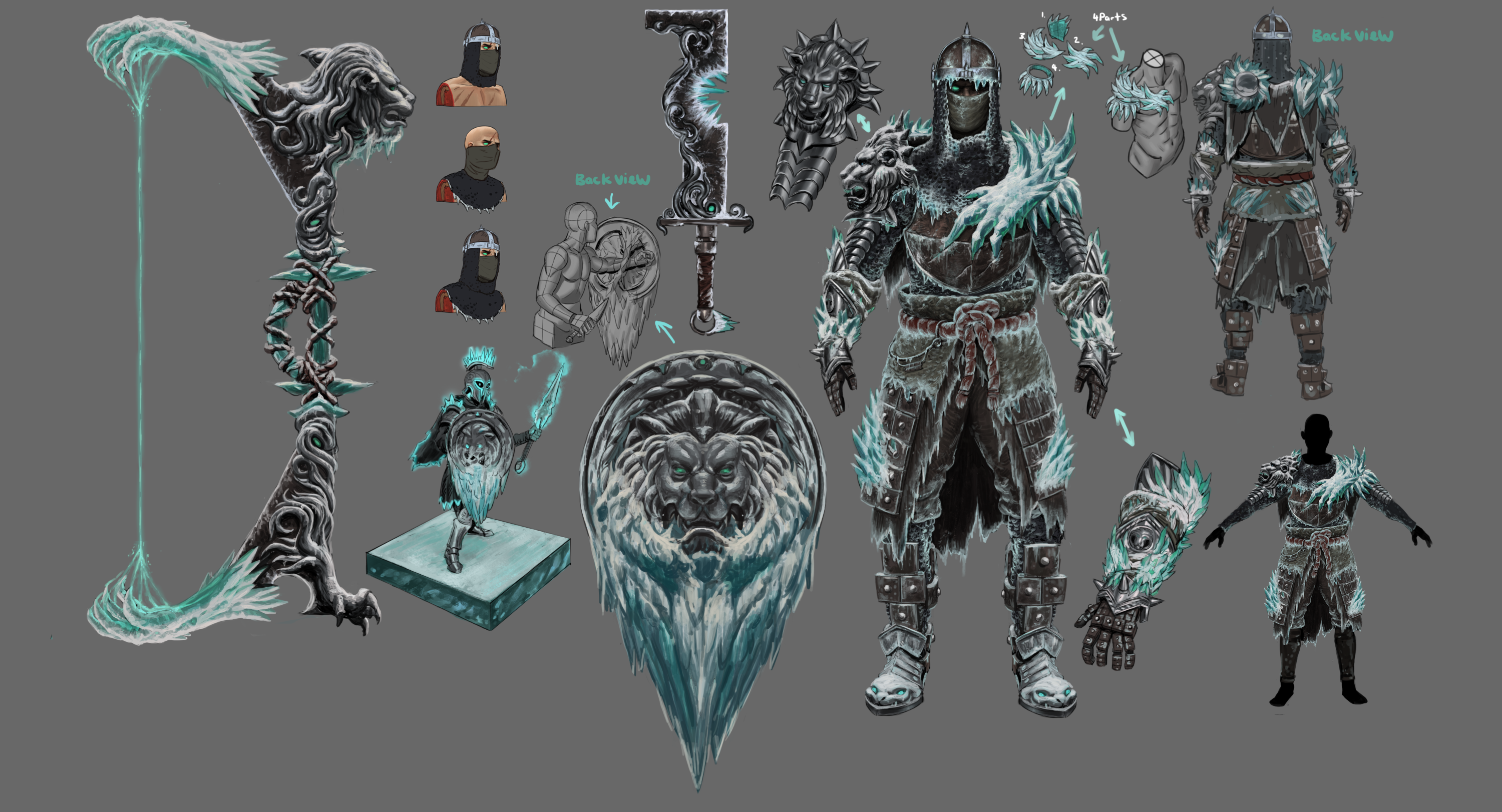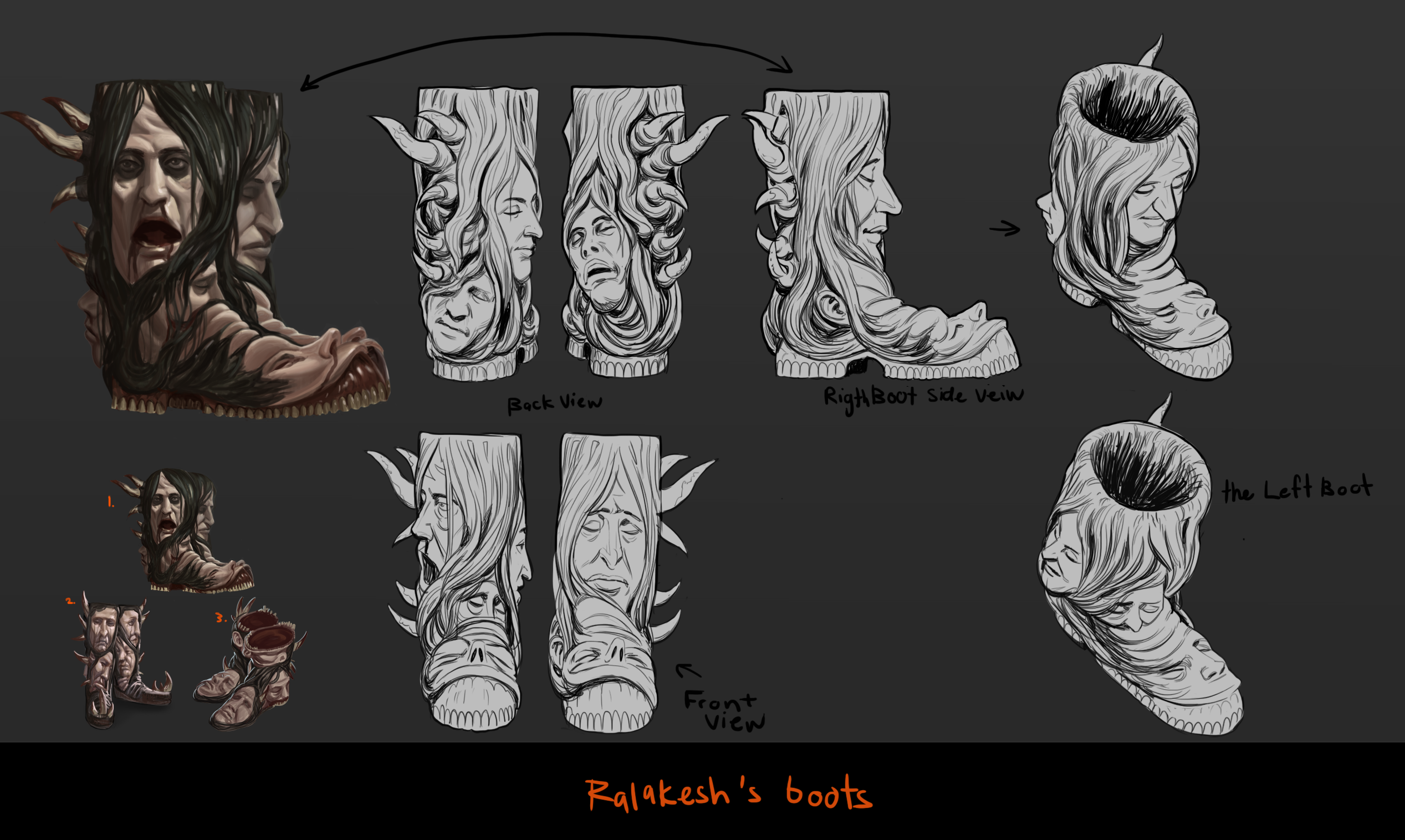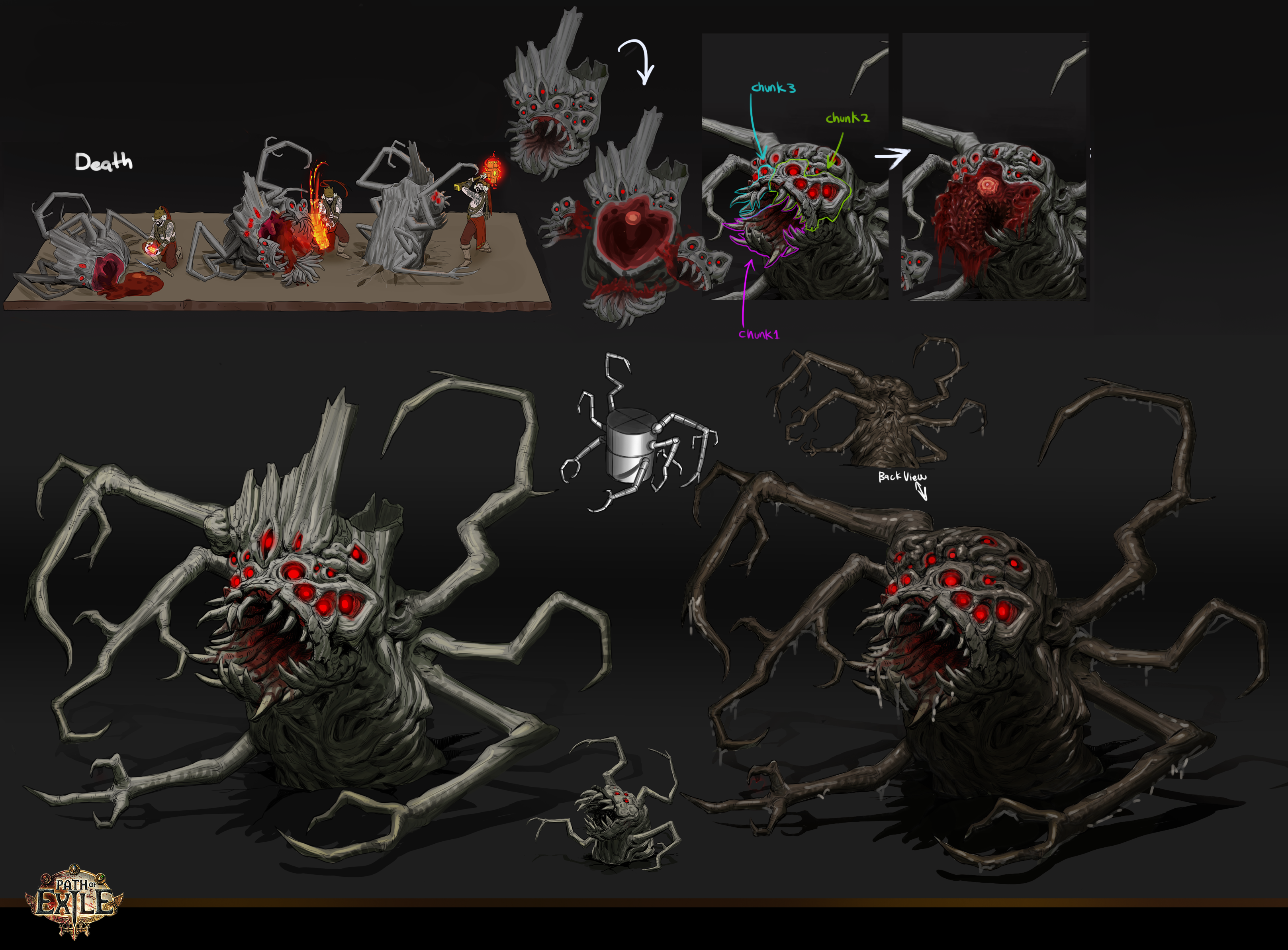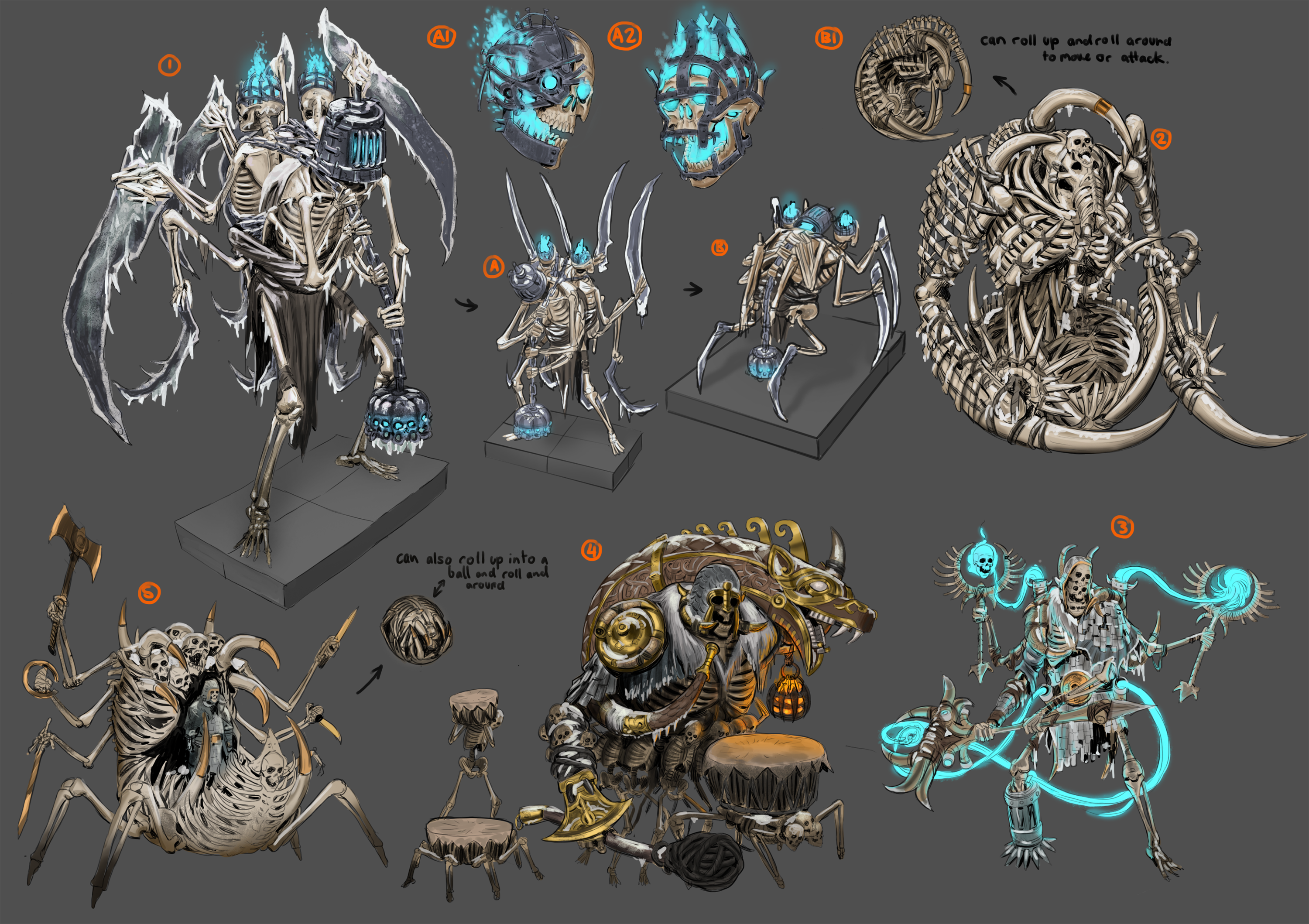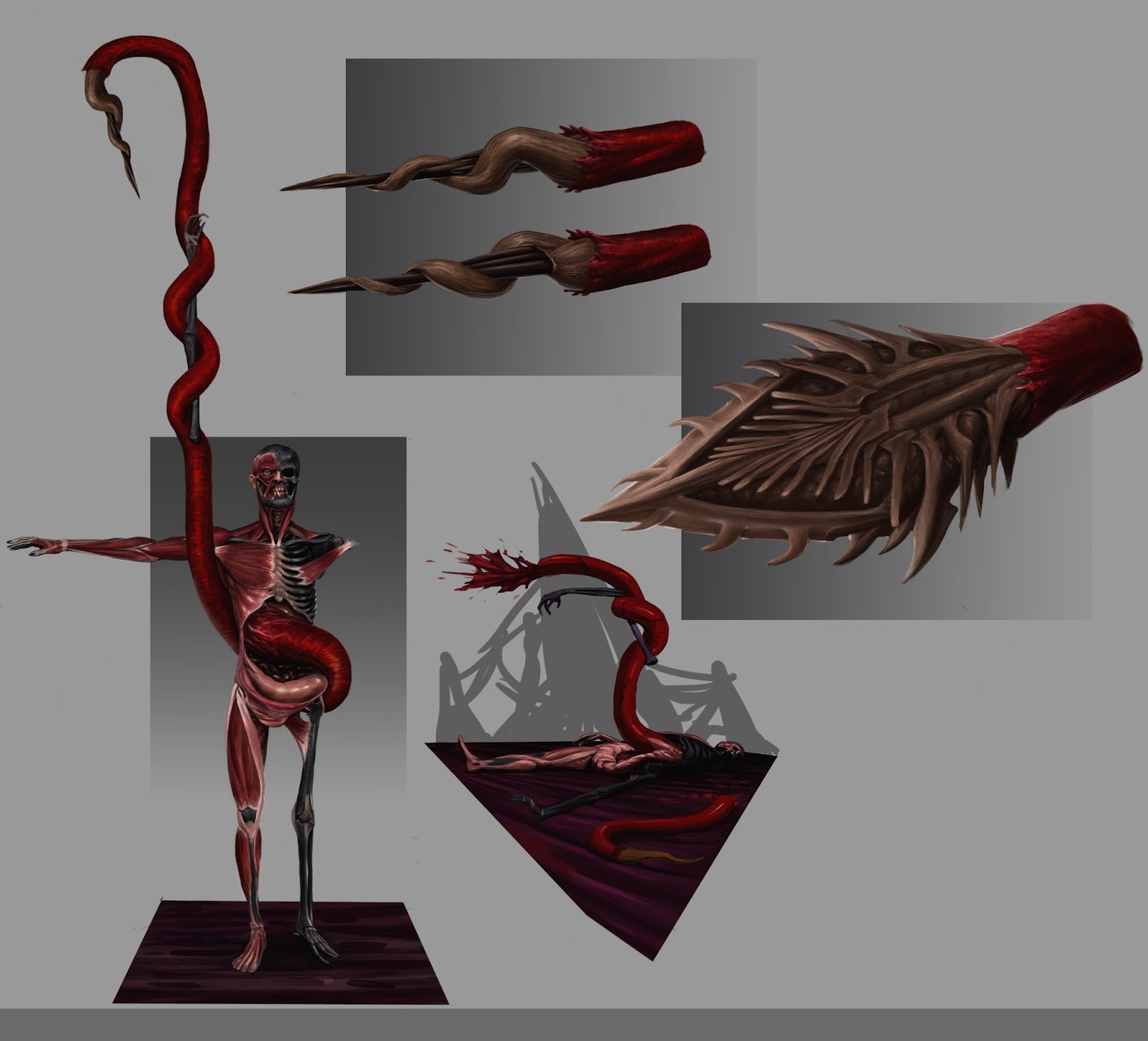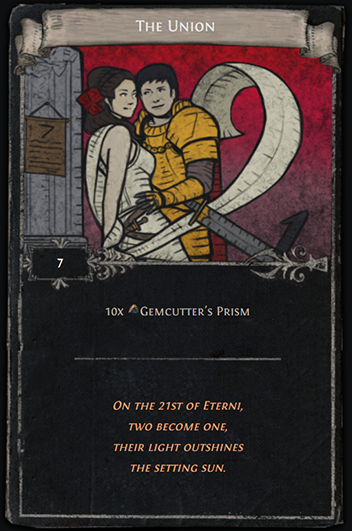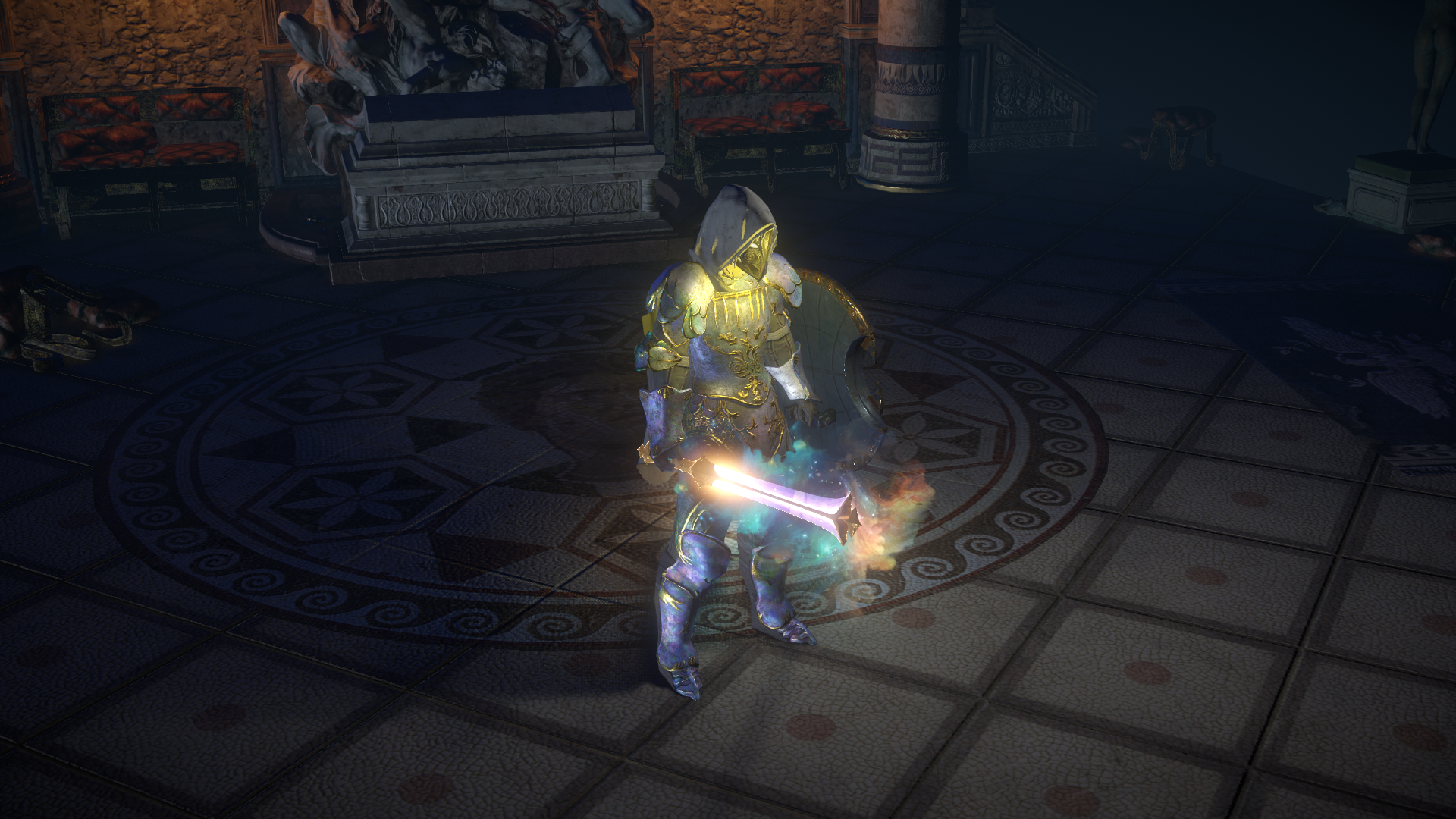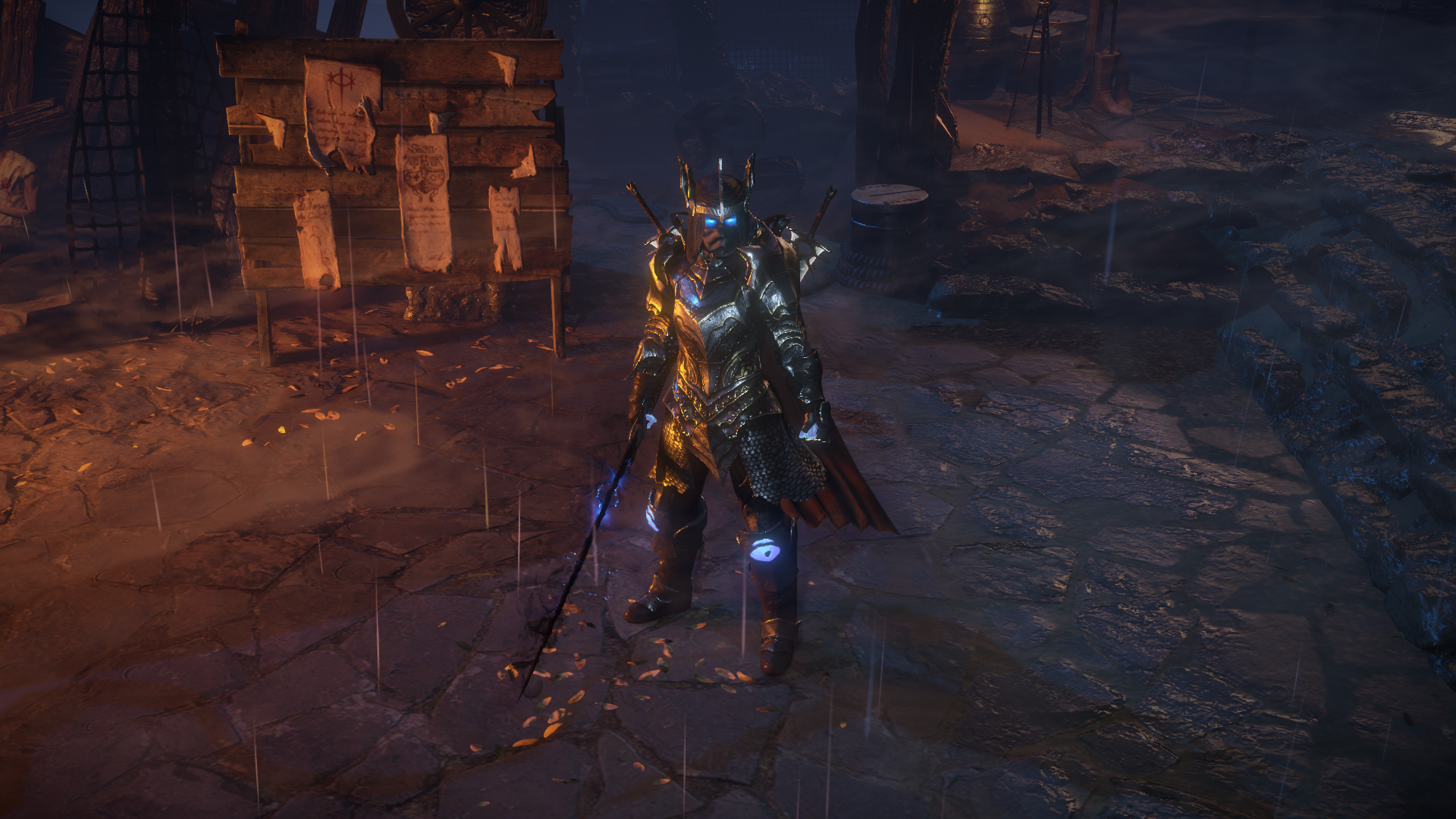
We recently hired a new Narrative Designer, Matt, who helped work on our recent lore-heavy expansion, Betrayal! We took a moment to get some insights about Matt's role and his working life.
Hi Matt! Thanks so much for participating in the interview. Could you please introduce yourself and let us know a little bit about your history with writing?
I’m Matt Dymerski, also known as
M59Gar. I’m from pretty much the opposite side of the planet - Ohio - but I’m absolutely loving it here in Auckland. I’m considering sending pictures from the beach to my friends back home, who are currently snowed under, but that would require me to actually leave the computer and go to the beach. I’m a lifelong writer and gamer, and I usually end up in content creation one way or another.
As a writer, I’ve certainly had an interesting journey. I got my start online in the first generation of modern creepypastas around 2008. We were just a couple dozen amateur writers on someone’s blog when we went viral. Effectively, that was the birth of the indie horror community, which has now grown to enormous size. In that time, I ran a small e-publishing company to help get my fellow authors into the business, as well as writing novels of my own. Over time, I transitioned away from publishing and toward writing, which is my true passion.
I greatly enjoy building enormous worlds that are comprehensively designed behind the scenes so that, even though the reader only sees small pieces one a time, there’s an interconnectedness that makes the experience immersive. My style is a dark mixture of science fiction and horror influenced in large part by classic authors like H.P. Lovecraft and modern filmmakers like John Carpenter. My favorite movie is In The Mouth of Madness, so watch that to get an idea of what kind of things I might write. Bonus: Sam Neill is a kiwi!
How and when did you find out about Path of Exile? What do you like the most about the game?
I found out about Path of Exile by recommendation from one of my old guildmates from Diablo 2. He called it ‘Diablo but better,’ and that was when Lunaris 3 was the end of the game. I can’t imagine what he thinks now!
Path of Exile’s greatest appeal to me is the ‘build fugue.’ There’s nothing more fun than getting lost in thought for hours - or even days - working on a new and creative character build. Path is the only game that keeps me coming back full of excitement every three months. I’m absolutely determined to make a self-chill Winterweave build excel. One of these days, I’ll succeed!
How did you end up working at Grinding Gear Games?
I saw a post on the /r/pathofexile subreddit linking to GGG’s job posting, and, when I read it, it seemed to be written specifically about me to an eerie degree. For a good week or so, it tormented my dreams, whispering my name. It would be crazy to move across the entire world, right? Eventually, my sanity cracked, and I was compelled to send in my resume.
Could you please tell us about your current role at Grinding Gear Games and what an average work day is like for you?
Grinding Gear Games is unlike any company I’ve ever worked for. Everyone here is helpful, focused, and good at what they do. Players often wonder how GGG creates a new expansion every three months, and I can tell you (now that I’m on the inside!) that it’s because these people actually want to be here doing this. Conversations generally revolve around, “Oh man, players are going to love this!”
My average work day involves a surprising amount of research and talking to coworkers. Path of Exile isn’t the sort of game that requires massive volumes of text, so I’m not typing furiously in a rapid-cut montage while rock music plays. Rather, the goal is to make each line of text hit hard at many different levels. My montages look like slowly panning B-roll footage as I smile for no reason and check multiple different documents for accuracy. That’s what I enjoy the most - thinking about that moment when a player puts one piece of lore together with another and has an ‘aha!’ revelation about Wraeclast and its history. I think players are going to enjoy where the lore is heading. The first thing I did when I got here was learn every single piece of public and secret lore, so that everything going forward has a unified world behind it.
You're creating new lore for Path of Exile's upcoming 3.6.0 expansion. Would you be able to give us an overview of this process?
This is the first league I’m truly ready to ‘dive in’ for, since I arrived in New Zealand the first week of Delve and was still learning the ropes while working on Betrayal. Lore planning for this league started while almost everyone was out on vacation; Mark Roberts and I sat around a bit throwing ideas out there and refining some lore concepts and names. The mechanical aspects were already decided, mostly. When people got back, the person I work with the most, Nick Kolan, put those concepts together with the design team’s mechanical expectations and created script docs and spreadsheets. Nick and I go back and forth iterating the ideas until they land just right. He’s an all-star that does both design and writing.
How difficult was it writing multiple crossing storylines for Betrayal?
Nick created a
fantastic spreadsheet that encompassed all nineteen or twenty personalities. After that, it was actually really fun. We iterated those whenever we had a better grasp of what Betrayal would look like and how these characters would come out. We also took charge of handfuls of specific characters to make sure they stayed consistent. I led It That Fled, Jorgin, Cameria, and Guff for example. On the flip side, some characters, like the previous masters, were just extensions of existing characters.
Can you tell us about some of your inspiration for character lines you've written in-game? In particular, we'd love to know more about your thoughts behind Guff.
The lines I write usually come from the question, “What is this character feeling in this moment?” along with a link to the reason they’re present in the first place. These characters aren’t trying to entertain an audience with cool quips. They’re vying for position within a Syndicate they may or may not want to be a part of, and for them the struggle requires playing up their own strengths and downplaying their weaknesses… until something hits them the wrong way and they react genuinely. That’s how you get things like Haku, a nice person, saying in front of his men that he’ll crush you, but when he’s alone and defeated he whispers that he misses his family and just wants to go home. Of course, some characters aren’t aware of the social game at all (It That Fled) or simply don’t care (Cameria).
Guff was a ton of fun. In fact, that was the core of the character. In a Syndicate full of violence and grimness, is anyone actually having a good time? Yes. Guff Gren is! Inspiration for his character and lines came from a book called the Dialect of Craven, published in 1828, which is a sort of old-timey dictionary I stumbled across during my research montage that contained a litany of exotic insults I’d never heard before. When Guff calls you a plenary whiffle-whaffle, he means it! The rest of his personality was built out out of the question, “What kind of person would get along with each one of this rogue’s gallery of misfits?”
Is there anything about this process that has surprised you?
I… uh…
well...
Is there anything particularly different about writing in-game lines and short stories?
Short stories carry a reader through a cohesive and punchy arc from beginning to end. In-game lines, however, are part of an unpredictable experience that will be heard in a random order, and often hundreds of times in a row. For example, we couldn’t really have known that players would be choosing Bargain pretty much every encounter, and rushing the Syndicate in Harbour Bridge so fast that they’re hearing the Bargain lines a hundred times an hour. If I’d known, I would have had most Bargain lines be closer to, “Bye.” or “Okay.” just to spare the player’s sanity.
Do you have a favourite storyline in the game?
I’m a big fan of quietly sad plotlines. My favorite fragment is the tragedy of the family in the Crossroads, as told by Etchings on Wood, while my favorite greater plotline stems from Victario’s graffiti in Sarn. He tried so hard to fight for the future of the people, and he actually helped win a bunch of victories against all odds - but it wasn’t enough, and now all that’s left are rebellious bits of graffiti calling for action in a cause centuries lost. Most players run by these and don’t even give them a second thought, which is a very realistic reaction. All that love and pain and triumph and loss is nothing now but old paint.
What is it like hearing the voice actors bring your lines to life?
Among other recordings, I got to be present for Guff, and this guy, Kelson Henderson, was incredible. He just walked in and started talking exactly as you hear Guff in-game. He had the personality down pat. It was kind of astounding.
It was fantastic listening to these characters come to life. The best one, hands down, was the experience with It That Fled. The whole time, I was dreading trying to explain this absurd character to someone. Then, I couldn’t make the recording, and I just had to hope it turned out alright. I got the files soon after, and it turned out, Victoria Abbott absolutely nailed it. We didn’t even have to give any guidance or do any voice alteration effects - she’s just like that! Am I kidding? Maybe.
Maybe not.
Could you give any advice to aspiring writers?
We live in an era without gatekeepers. You don’t need anybody’s approval to write. You don’t need to submit things to agents or publishing houses. You certainly can if you want, but that’s a much further step down the road of writing than people think. The best thing you can do as an aspiring writer is to write passionately and relentlessly. Put your writing on Amazon, on a blog, on a website, or in a book. Post it on Facebook if you’ve got nowhere else.
The only way you can truly advance is by sending your writing out there to garner real reactions from other people. That continual process of creation and reaction is how you get better, and also the only way to truly feel any sense of reward. If someone says your work is bad, that’s fine, you’ll improve. If someone says your work is good, that’s fine, too, improve it anyway. Eventually, you’ll understand what you’re doing well enough that you won’t feel like you’re ‘aspiring’ anymore. You’ll actually feel like a writer.
(Secret: you always were.)



